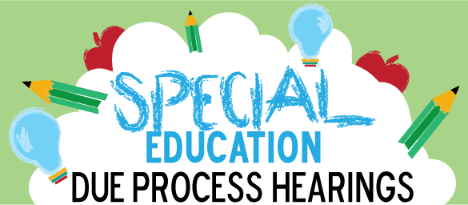Core Lessons Taught in Hunter Education: Preparing Young Hunters for Safe and Ethical Adventures
Introduction: The Foundation of Hunter Education for Youth
Hunter education programs have long served as a vital gateway for young people interested in outdoor hunting traditions. These programs, mandated in many states before anyone can obtain a hunting license, are designed to instill critical principles that go far beyond marksmanship. Whether taught in classrooms, through hybrid online models, or via field instruction, hunter education courses share a consistent set of core teachings aimed at ensuring safety, fostering ethical behavior, and encouraging stewardship of natural resources.
Core Principles and Lifelong Lessons in Hunter Education
1. Firearm Safety and Handling
One of the most fundamental elements taught to young hunters is firearm safety and responsible handling . Students learn the mechanics of firearms, safe loading and unloading practices, and the importance of always pointing a firearm in a safe direction. These courses emphasize the universal rules of firearm safety, such as keeping your finger off the trigger until ready to shoot and treating every firearm as if it is loaded. Instructors use hands-on demonstrations and real-life scenarios to ensure these lessons become second nature, reducing risks of accidents in the field [1] , [2] , [3] .
Example:
In a typical class, students might practice safe carry positions using dummy firearms, learning how to cross obstacles safely while always maintaining muzzle control.
Practical Steps: To internalize these safety habits, young hunters should regularly review safety checklists and participate in supervised practice sessions, both during and after their course completion.
2. Sportsmanship and Ethics
Sportsmanship and ethical hunting are cornerstones of hunter education. Programs teach youth about fair chase principles, respect for other hunters and non-hunters, and adherence to game laws and regulations. Young hunters learn that ethical behavior means not only following the letter of the law but also embracing respect for wildlife and the environment. Scenarios may cover dealing with peer pressure, making ethical shot choices, and the importance of reporting illegal activities [1] , [3] .
Example:
Instructors may present dilemmas, such as whether to take a risky shot or how to respond if witnessing another hunter violate regulations, guiding students toward responsible decisions.
Implementation Guidance: Young hunters can reinforce these values by discussing scenarios with mentors or family members and reviewing their state’s hunting regulations each season.
3. Wildlife Management and Conservation
Hunter education consistently emphasizes the role of hunters in wildlife management and conservation . Courses highlight the importance of regulated hunting as a tool for population control and habitat health. Youth learn about local ecosystems, the concept of carrying capacity, and the historical impact of conservation laws. These lessons foster a sense of stewardship, encouraging young hunters to become advocates for sustainable practices and habitat preservation [1] , [2] , [3] .
Example:
Classes often include discussions on how hunting license fees and excise taxes support wildlife conservation programs and habitat restoration projects.
Action Steps: Youth can get involved by volunteering for local conservation projects or participating in youth hunting mentorship days offered by wildlife agencies.
4. Field Skills: Survival, First Aid, and Game Care
Hunter education programs always incorporate basic survival skills, first aid, and game care . Young hunters are taught how to respond to emergencies in the field, including treating minor injuries, navigating with a map and compass, and preparing for adverse weather. Courses also cover humane methods of game retrieval, proper field dressing, and safe transportation of harvested animals. These skills are reinforced with practical exercises and demonstrations [1] , [2] , [3] .
Case Study:
A student who became lost during a family hunting trip successfully used skills learned in a hunter education course to build a temporary shelter and signal for help, demonstrating the real-world impact of these lessons.
Practical Application: Young hunters should assemble a personal field kit containing first aid supplies, navigation tools, and survival essentials, and review its contents before every outing.
5. Wildlife Identification and Hunting Methods
Accurate wildlife identification is a critical safety and conservation component. Courses teach young hunters how to distinguish game species from protected species, recognize animal tracks and signs, and understand seasonal behaviors. Instruction also covers various hunting methods, including archery, black powder, and firearm techniques, with a focus on safe and ethical approaches [1] , [2] , [3] .
Implementation Guidance: Youth are encouraged to study species guides, attend field workshops, and practice identification skills with experienced mentors.
How to Access Hunter Education Programs
Mandatory Training and Eligibility: Most states require anyone who has never held a hunting license, or is under a certain age, to complete a certified hunter education course before purchasing a license [3] . These courses are available in traditional classroom settings, hybrid models (with online and in-person components), and sometimes as online-only for adults.
Steps to Get Started:

Source: steponenglish.com
- Contact your state’s Department of Fish and Wildlife or equivalent agency to confirm requirements in your area. For California, detailed course options and registration information can be found by searching for ‘California Department of Fish and Wildlife Hunter Education.’
- Choose your preferred course format (traditional, hybrid, or online-note that some formats have age restrictions).
- Register in advance. Courses often fill up quickly, especially before hunting seasons. If you are a previous license holder or have a fishing license, you may already have a registration ID (such as California’s GO ID).
- Complete all required components, including classroom instruction, field exercises, and a final exam. A passing score is typically required for certification [3] , [5] .
- Upon completion, you will receive a certificate that allows you to purchase a hunting license.
Alternative Pathways: Some states recognize hunter education certificates from other states or provinces due to reciprocity agreements. If you have completed an approved course elsewhere, contact your local wildlife agency to confirm if your certification is valid for hunting in your state [5] .

Source: lingokids.com
Continuing Education and Mentorship
Hunter education is not a one-time experience. Many programs offer advanced courses, bowhunting classes, and field days for ongoing skill development. Youth are encouraged to seek mentorship from experienced hunters, participate in local hunting clubs, and stay updated on changes in regulations and conservation practices. These experiences reinforce the lifelong lessons of safety, ethics, and stewardship introduced in the initial course [3] .
Key Takeaways for Young Hunters and Their Families
Hunter education programs have always taught young hunters the vital skills and values needed for safe, responsible, and ethical hunting. The curriculum is designed not only to prevent accidents and promote legal compliance but also to nurture a deep respect for wildlife and wild places. By taking these courses, young hunters join a tradition of stewardship and outdoor ethics that extends across generations.
For those ready to begin, contact your state’s wildlife agency or search for “hunter education course” along with your state name to find official options and registration details. Parents and guardians should accompany youth during registration and, when required, throughout the course to ensure full participation and consent [3] , [1] .
References
- [1] Escondido Fish & Game Association (n.d.). Hunter Education Class Description.
- [2] California Rifle & Pistol Association (2023). Traditional Hunter Education Event Details.
- [3] California Department of Fish and Wildlife (n.d.). Hunter Education Program Overview.
- [4] Hunter Safety USA (2025). California Hunter Safety Course Steps.
MORE FROM couponnic.com













